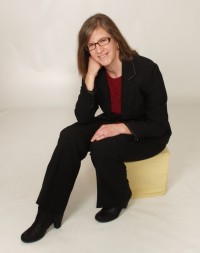Turf wars. Power. Control. Even when everyone’s goal is the cultural enrichment experiences of children, these primal drives can rear their ugly heads.
Our school district is keen on music. Not only is the administration committed to top-notch music education programs, but the parent community gives generously of both manpower and financial support, and the community-at-large is monetarily supportive. Up until this school year, there has been a parent organization of instrumental boosters who dedicate significant time and money (through donations and fundraising efforts) to support the band and orchestra programs throughout the district. One big, happy, musical family – think “Partridge.”
But this year the orchestra has split from the instrumental boosters and started its own association. There is much snipping and moaning and complaining from a lot of families. Since our family has two kids in the band program and one in orchestra, I’ve been bouncing back and forth from various levels of “somewhat irked” to “significantly ticked off.” The two organizations are ostensibly still working together for a few of the major fundraisers, but there is bickering over the details of distribution. Families now have to decide whether they’re representing the band or the orchestra when they volunteer to take on a shift. What used to be one donation check to a big general pot (with occasional extra contributions to specific projects) now has to be divided, but it’s not exactly clear how to divide it.
I am well aware of how lucky I am to live in a community that is so supportive of arts education. And I am equally aware of how the current “problem” is insignificant in the grand scheme of things (or even in a much smaller scheme of things, for that matter). But this small-scale secession mirrors those on larger scales. It speaks to issues of money, power, control, self-interest, and perceived fairness. Such issues arise in families, schools, workplaces, government – pretty much anywhere you have more than one person and a finite supply of anything. They certainly come to play within the details of how the medical world functions. Who’s making medical decisions? Is it the primary care doctor? The specialist? The patient? The patient’s family? The insurance company? Who has how much say in each decision? How much does each provider of the care get compensated? Who pays for what and how much do they pay?
In our community, the friction (which, by the way, originated and is contained among a very small contingent) is an inconvenience. The overall music programs will retain their excellence, and although fundraising and allocations are at this point dividing, the music community as a whole is strong, and the kids and families are all friends, looking out for and supporting one another. We value our community. I would love for our elected government officials to reflect this overall good will towards their fellow humans as they work to resolve our federal budget conflicts.
Yes, we each need to be our own advocates. But “our own” includes more than just our selves. It includes our families. Our friends. Our block. Our neighborhood. Our school. Our school district. Our county. Our state. Our country. Our world.
